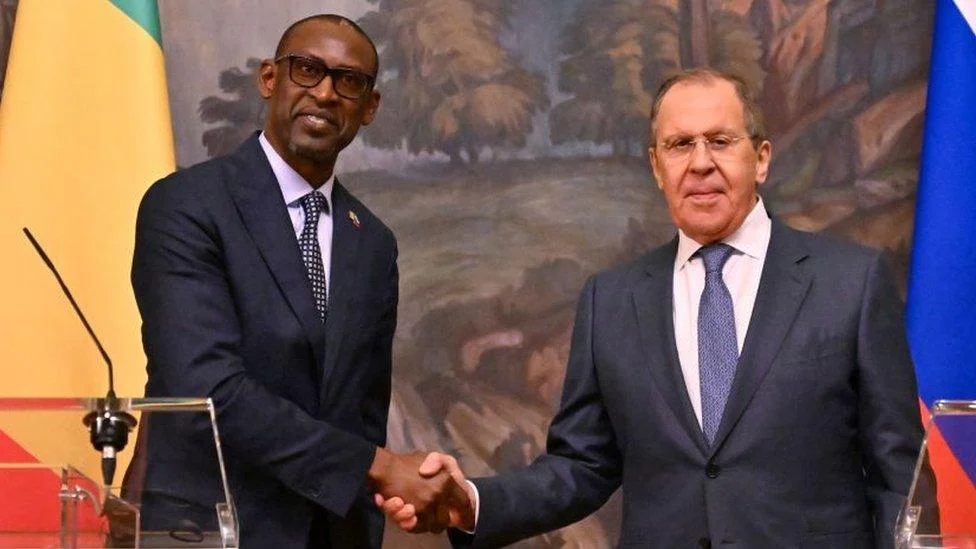Mali, grappling with a persistent jihadist insurgency, initially relied on former colonial power France for military assistance through operations like Barkhane.
However, deteriorating relations with Mali’s junta, which seized power in a 2020 coup, led to France’s withdrawal of troops in 2022.
In response, Mali’s transitional government turned to Russia, securing planes, helicopters, and paramilitary support to combat militants.
Russian Foreign Minister Sergey Lavrov, during a February 2023 visit to Bamako, praised the growing Moscow-Bamako alliance, emphasizing its role in regional counterterrorism efforts.
Allegations of Wagner Group Atrocities
France and international organizations, including Human Rights Watch and the UN, have accused Russian operatives in Mali, identified as Wagner Group mercenaries, of human rights abuses.
A notable incident is the alleged March 2022 massacre in Moura, central Mali, where Wagner and Malian forces reportedly killed several hundred civilians.
The Wagner Group, also active in Syria and Ukraine, has been implicated in executions, mass graves, and other violations, raising global concern about Mali’s reliance on the private military company.
Expulsion of UN Human Rights Envoy
On February 5, 2023, less than 48 hours before Lavrov’s visit, Mali’s junta expelled Guillaume Ngefa-Atondoko Andali, head of MINUSMA’s human rights division, accusing him of “destabilizing and subversive actions” by promoting biased civil society voices at a UN Security Council briefing.
Foreign Minister Abdoulaye Diop claimed human rights were being “instrumentalized” for political agendas, reflecting Mali’s sensitivity to international scrutiny of its military partnerships and governance.
Russia’s Expanding African Influence
Lavrov’s African tour extended to Mauritania on February 7, 2023, marking the first visit by a Russian foreign minister to the country.
He met President Mohamed Ould Ghazouani and Foreign Minister Mohamed Salem Ould Merzoug before heading to Sudan.
Russia’s engagement follows its outreach to nations like South Africa, which has maintained neutrality in the Ukraine conflict, frustrating Western powers like the US seeking to counter Moscow’s influence in Africa.
South Africa’s stance, alongside other African nations, underscores a broader trend of non-alignment amid global geopolitical tensions.
Regional and Global Implications
Mali’s pivot to Russia and rejection of Western partnerships, including expelling French and UN figures, signal a reconfiguration of its foreign relations.
The junta’s alignment with Wagner has intensified concerns about human rights and governance, particularly as jihadist violence persists.
Lavrov’s tour highlights Russia’s strategic push to expand influence in Africa, leveraging anti-Western sentiment and offering military support to regimes facing insurgencies.
This shift complicates international efforts, including MINUSMA’s mandate, to stabilize Mali and address humanitarian crises.






